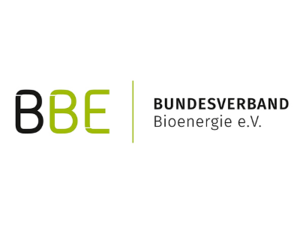German Bioenergy Association (BBE) on the revamped 2022 Climate, Energy and Environmental State Aid Guidelines
Commenting on the current revision of the EU’s Climate, Energy and Environmental State Aid Guidelines, Udo Hemmerling, German Bioenergy Association (BBE) Board Member noted, “With the Green Deal, the European Climate Law and the ‘Fit for 55’ package, the EU is not only setting the framework for climate change mitigation in Europe but is also setting the pace for ambitious climate protection in industrialised countries around the globe. The draft for the new Climate, Energy and Environmental Aid Guidelines (CEEAG) will provide EU Member States with important guidance when it comes to expanding measures for renewable energies and climate protection. It is therefore crucial for these guidelines to be aligned with the climate and energy targets in the European Climate Law and the recently published draft ‘Fit for 55’ package and to grant EU Member States the flexibility required to achieve the EU targets. The transition to greenhouse gas neutrality will demand unprecedented investment and, above all, financial mobilisation will be called for in the short term. State aid will play a key role in stimulating the requisite innovations and enabling vital large-scale investments in climate-friendly technologies.”
As BBE Board Member Udo Hemmerling emphasised, bioenergy from agriculture and forestry that draws on a wide variety of energy sources does not simply offer remarkable climate protection potential that can be activated immediately for almost all economic sectors; it can also contribute to developing much-needed greenhouse gas sinks or fostering a diverse range of agricultural crops and biodiversity. He commented that the principal objective for the European Commission must therefore be to provide incentives for accelerated climate change mitigation through the guidelines rather than introducing obstacles, “for it is above all time that is in short supply when it comes to attaining the 2030 climate protection targets in just eight years.”
BBE board member Hemmerling points out that consistency between the state aid guidelines and the “Fit for 55” package is vital to achieve the now more ambitious climate and renewable energy targets. That makes it important to examine whether particular provisions in the draft State Aid Guidelines would run counter to these goals, for example, if the check for overcompensation for tax relief for biofuels in agriculture and forestry envisaged in the draft were to call use of these fuels into question rather than promoting it. In contrast, the current draft recast of the Energy Taxation Directive envisages a welcome reduction in taxation for sustainable biofuels. Hemmerling underscored that the European Commission is on the right track here in according Member States the freedom to introduce tax incentives to promote use of biofuels, e.g. in agriculture and forestry, without introducing excessive bureaucracy and without a check for overcompensation that would have triggered uncertainty among biofuel suppliers and users.
The BBE position on the revamped CEEAG can be downloaded here.
- Plattform
- Erneuerbare
- Antriebsenergie
- im Einsatz
- Presse
- TrAkzeptanz



